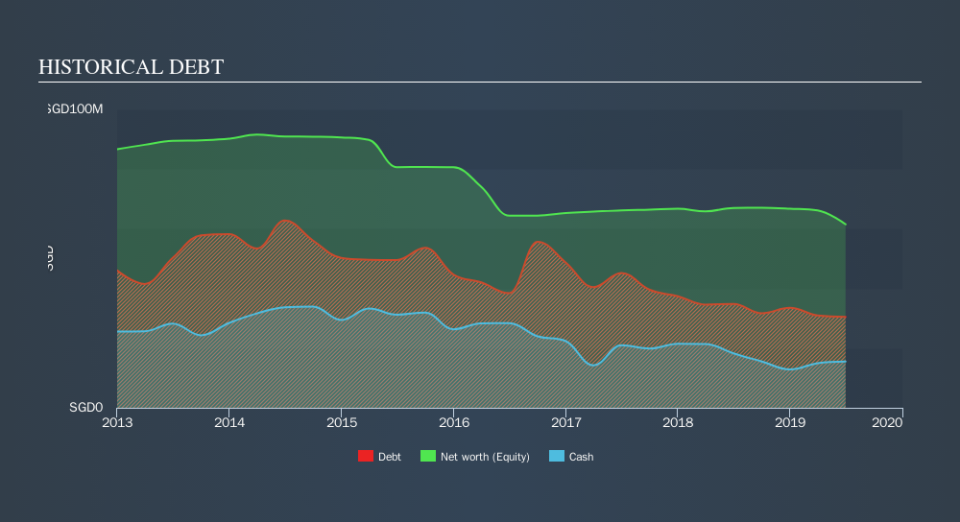Is Union Steel Holdings (SGX:BLA) Weighed On By Its Debt Load?

David Iben put it well when he said, 'Volatility is not a risk we care about. What we care about is avoiding the permanent loss of capital. So it might be obvious that you need to consider debt, when you think about how risky any given stock is, because too much debt can sink a company. As with many other companies Union Steel Holdings Limited (SGX:BLA) makes use of debt. But the real question is whether this debt is making the company risky.
Why Does Debt Bring Risk?
Generally speaking, debt only becomes a real problem when a company can't easily pay it off, either by raising capital or with its own cash flow. Part and parcel of capitalism is the process of 'creative destruction' where failed businesses are mercilessly liquidated by their bankers. However, a more usual (but still expensive) situation is where a company must dilute shareholders at a cheap share price simply to get debt under control. By replacing dilution, though, debt can be an extremely good tool for businesses that need capital to invest in growth at high rates of return. When we think about a company's use of debt, we first look at cash and debt together.
View our latest analysis for Union Steel Holdings
What Is Union Steel Holdings's Net Debt?
The image below, which you can click on for greater detail, shows that Union Steel Holdings had debt of S$30.5m at the end of June 2019, a reduction from S$34.9m over a year. However, because it has a cash reserve of S$15.5m, its net debt is less, at about S$15.0m.
How Strong Is Union Steel Holdings's Balance Sheet?
According to the last reported balance sheet, Union Steel Holdings had liabilities of S$36.8m due within 12 months, and liabilities of S$5.63m due beyond 12 months. On the other hand, it had cash of S$15.5m and S$11.8m worth of receivables due within a year. So its liabilities outweigh the sum of its cash and (near-term) receivables by S$15.1m.
When you consider that this deficiency exceeds the company's S$12.4m market capitalization, you might well be inclined to review the balance sheet intently. Hypothetically, extremely heavy dilution would be required if the company were forced to pay down its liabilities by raising capital at the current share price. The balance sheet is clearly the area to focus on when you are analysing debt. But you can't view debt in total isolation; since Union Steel Holdings will need earnings to service that debt. So when considering debt, it's definitely worth looking at the earnings trend. Click here for an interactive snapshot.
In the last year Union Steel Holdings's revenue was pretty flat, and it made a negative EBIT. While that's not too bad, we'd prefer see growth.
Caveat Emptor
Over the last twelve months Union Steel Holdings produced an earnings before interest and tax (EBIT) loss. Indeed, it lost a very considerable S$3.5m at the EBIT level. When we look at that alongside the significant liabilities, we're not particularly confident about the company. We'd want to see some strong near-term improvements before getting too interested in the stock. Not least because it had negative free cash flow of S$217k over the last twelve months. So suffice it to say we consider the stock to be risky. For riskier companies like Union Steel Holdings I always like to keep an eye on whether insiders are buying or selling. So click here if you want to find out for yourself.
If you're interested in investing in businesses that can grow profits without the burden of debt, then check out this free list of growing businesses that have net cash on the balance sheet.
We aim to bring you long-term focused research analysis driven by fundamental data. Note that our analysis may not factor in the latest price-sensitive company announcements or qualitative material.
If you spot an error that warrants correction, please contact the editor at editorial-team@simplywallst.com. This article by Simply Wall St is general in nature. It does not constitute a recommendation to buy or sell any stock, and does not take account of your objectives, or your financial situation. Simply Wall St has no position in the stocks mentioned. Thank you for reading.

